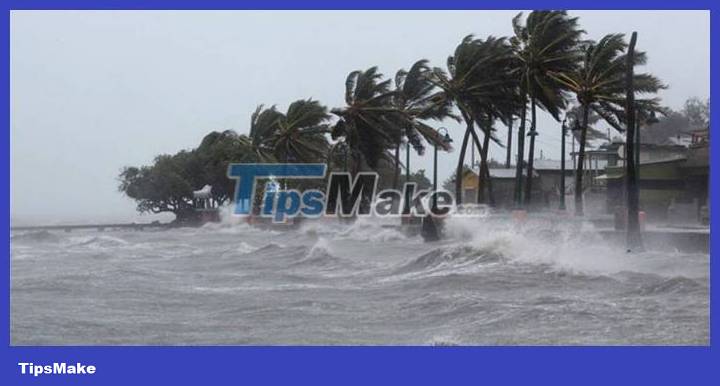What if hurricanes disappeared from Earth?
When a storm occurs, it often brings heavy rain and strong winds, leading to difficulties in movement, flooding, etc., which can have severe consequences. Therefore, it can be said that the storm is something that is not welcomed by humans. But if there were no storms, what would the earth be like?

The lack of storms is what scientists call anticyclones ("non-hurricanes") - a concept opposite to hurricanes, tornadoes.
In contrast to thunderstorms when storms appear, "non-typhoon" is associated with warm sunny weather, and slow moving winds. However, this seemingly beautiful weather is easy to become a "heat trap", and certainly no one wants to fall victim to it.
"Hurricane" causes high pressure to push the air downwards, causing them to quickly heat up. This hot air cannot escape from the 'fire pan' because of slow winds, leading to the formation of a heatwave. And this is happening in some parts of Europe during the summer of 2023.
According to forecasters, the southern part of the continent will experience a few harsh weeks due to global warming combined with El Nino. In the next few days, many cities, notably Rome, will have record high temperatures, breaking the record of 40.7⁰C set in June 2022. Meteorologists also fear that temperatures across the entire continent of Europe will also rise to record highs.
Heat waves are not only hotter but also last longer than before, averaging about 2 weeks. In addition, climate change is also making extreme weather events more common. Now, extreme heat waves are likely to occur every 2-3 years, much shorter than "every 10 years" as before.
According to Iflscience, Earth has just experienced the hottest June in recorded history, and the first week of July 2023 is also the seven hottest days in a row that our planet has experienced in 100,000 years.
So, from a scientific perspective, in the context of extreme heat waves that are burning the world, the appearance of a storm is sometimes a good thing.